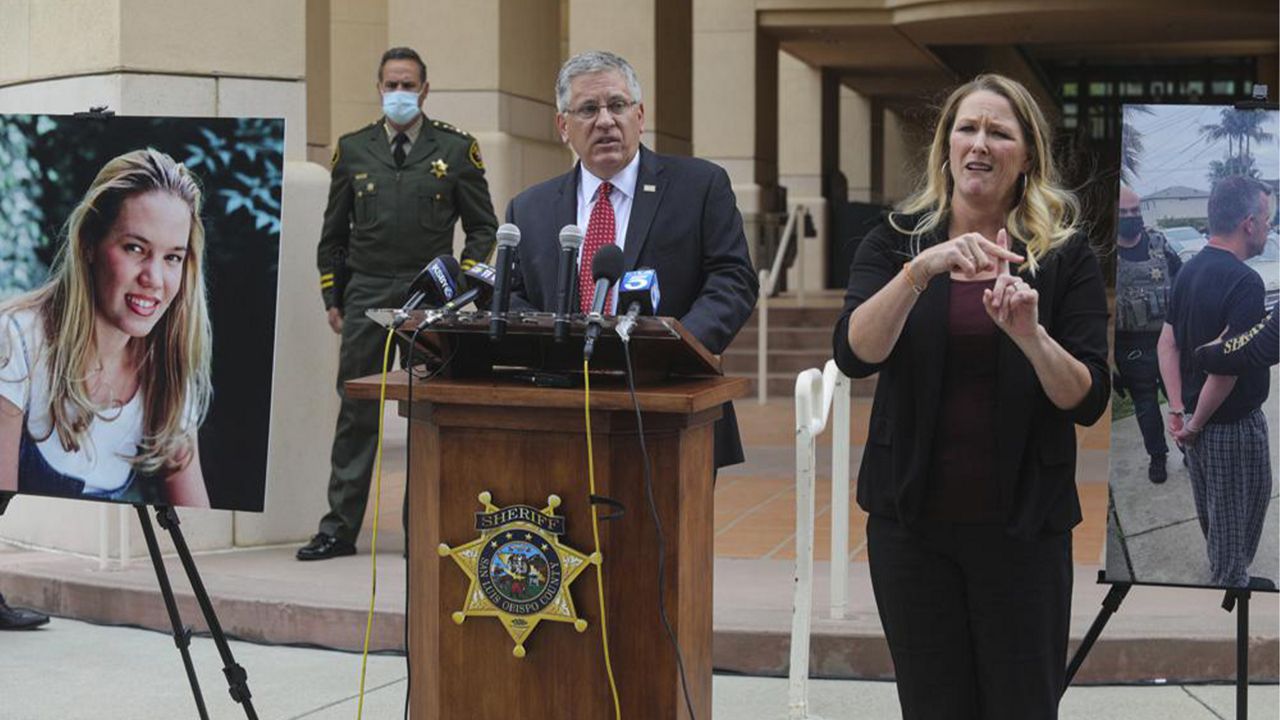SAN LUIS OBISPO, Calif. (AP) — The man last seen with Kristin Smart before she vanished from a college campus 25 years ago on the Central California coast will stand trial on a murder charge in her suspected death and his father faces trial as an accomplice for allegedly helping bury her body, a judge ruled Wednesday.
San Luis Obispo Superior Court Judge Craig van Rooyen said there was probable cause Paul Flores, 44, killed Smart and that Ruben Flores, 80, helped dispose of her body, which has never been found.
The ruling was met with gasps from the gallery where Smart’s parents sat with other family members and supporters, The Tribune reported.
Paul Flores was the last person seen with a very intoxicated Smart on May 25, 1996, as he helped walk her to her dorm at California Polytechnic State University after a party, witnesses said. Prosecutors said he killed Smart while trying to rape her in his dorm room.
Prosecutors presented evidence that Smart's body was once buried under a deck shielded by lattice behind Ruben Flores's home. Prosecutors said the body had been moved from that location and it's never been located.
Traces of human blood found were found under the deck along with stains in the soil and a disturbance in the earth the size of a human body, according to witnesses.
With a lack of DNA, “nothing links it definitively to Ms. Smart,” van Rooyen said, but it leads to “a strong suspicion it was Ms. Smart’s remains.”
Defense attorneys said prosecutors did not present enough evidence during a 22-day preliminary hearing to support the criminal charges. But van Rooyen said there was probable cause, a lesser standard of proof than beyond a reasonable doubt, which prosecutors will have to prove at trial.
Both men have pleaded not guilty.
During the preliminary hearing, prosecutors also presented evidence that four cadaver dogs stopped at Flores’ room and alerted to the scent of death near his bed.
Van Rooyen prevented prosecutors from presenting evidence alleging Paul Flores drugged and raped four women and engaged in dozens of acts including stalking, unwanted touching and aggressive sexual behavior.
Some women told police that Flores was referred to as “Chester the molester” and “psycho Paul,” according to a court document filed by prosecutors.
The judge said the evidence had limited relevance to the murder case and risked creating greater prejudice against Flores.
When Flores first spoke with police, he downplayed his interactions with Smart at the party and on the walk home. He said she walked to her dorm under her own power, though other witnesses said Flores was helping hold her up and that she had passed out earlier in the night.
Three days after Smart disappeared, Flores had a black eye that he told police he got playing basketball. Friends disputed that account and Flores later changed his story to say it happened while working on his car.
Van Rooyen said Flores' comments about the black eye showed a “consciousness of guilt.”
William Hanley, head of the district attorney’s investigative bureau in 1996, said Flores eventually stopped cooperating with authorities.
When Hanley asked Flores what he thought happened to Smart, he said she probably left with somebody and “he thinks she’s dead,” Hanley said.



